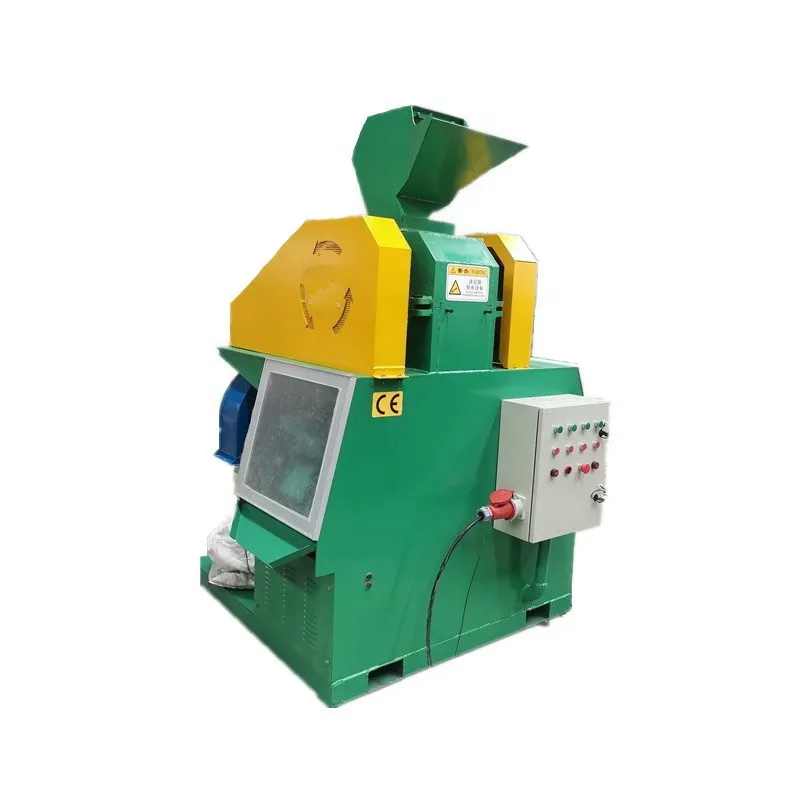

Kas . 30, 2024 23:54 Back to list
The Importance of Scrap Metal Plants in Today's Industry
In the modern world, where sustainability and environmental consciousness are gaining unprecedented importance, scrap metal plants play a crucial role in the recycling industry. These facilities are dedicated to the collection, processing, and recycling of scrap metal, which not only conserves natural resources but also significantly reduces pollution and energy consumption.
Scrap metal plants accept various types of metals, including ferrous metals like iron and steel, and non-ferrous metals such as copper, aluminum, brass, and lead. The process begins with the collection of scrap from various sources, including construction sites, demolition projects, manufacturing industries, and even discarded consumer products. Once collected, the metals are sorted, cleaned, and processed for recycling.
One of the key benefits of scrap metal recycling is its contribution to resource conservation. Mining new metal ores is an energy-intensive process that depletes natural resources and contributes to ecological degradation. By contrast, recycling scrap metal requires significantly less energy—up to 95% less for aluminum and 74% less for steel. This reduction in energy consumption not only lowers production costs but also minimizes greenhouse gas emissions, contributing to the fight against climate change.

Moreover, scrap metal plants help create a circular economy. By processing existing metals, these plants ensure that valuable resources are reused and repurposed rather than being sent to landfills. This shift toward a circular economy not only supports sustainability but also drives economic growth. The recycling industry contributes billions to the global economy and creates thousands of jobs, from collection and sorting to processing and transportation.
In addition to their environmental and economic benefits, scrap metal plants also promote safety and public health. The responsible recycling of scrap metals reduces the risk of hazardous materials entering the waste stream. Many metals can be toxic if not disposed of correctly; for instance, lead and cadmium can leach into the soil and groundwater, posing serious health risks. Scrap metal plants implement stringent safety measures and regulations to ensure that metals are processed and handled safely, minimizing potential environmental hazards.
The growth of technology has further enhanced the operations of scrap metal plants. Advanced sorting technologies, such as automated systems and AI-driven analytics, improve efficiency and accuracy in the sorting process. This not only increases the quantity of metal retrieved for recycling but also enhances the quality, resulting in higher-value products for manufacturers.
In conclusion, scrap metal plants are vital components of a sustainable industrial ecosystem. They conserve resources, reduce environmental impact, promote economic growth, and enhance public health and safety. As society continues to prioritize sustainability, the role of scrap metal recycling will be more critical than ever, paving the way for a greener and more sustainable future. Embracing this industry not only benefits the environment but also supports innovation and economic resilience in our increasingly resource-constrained world.
Latest news
The Future of Metal Recycling: Revolutionizing Waste Management
NewsMay.14,2025
Optimizing Waste with Recycling Lines
NewsMay.14,2025
Municipal Solid Waste Sorting Line: Revolutionizing Waste Management
NewsMay.14,2025
Metal Shredders: Essential Tools for Efficient Recycling
NewsMay.14,2025
Maximize Your Profits with a Copper Wire Granulator
NewsMay.14,2025
Home Metal Shredder: A Smart Choice for Your Home Recycling Needs
NewsMay.14,2025